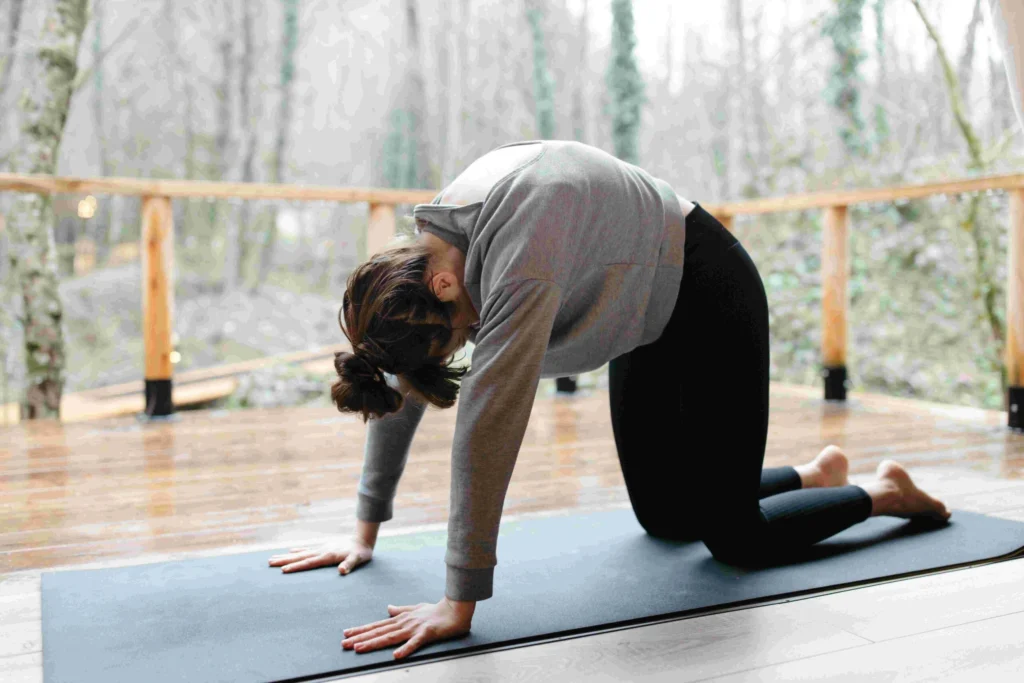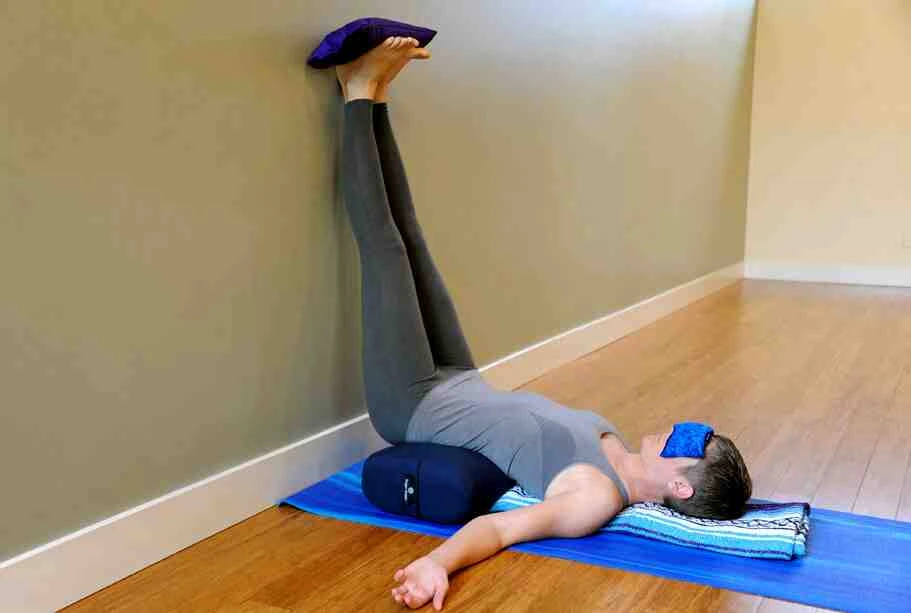Did you strike the perfect downward-facing dog stance today? You can feel fantastic from head to toe with daily yoga practice, even if you’ve never done it before!
No matter your age, yoga is beneficial to your body and mind. Yoga can be highly beneficial on your road to recovery, even if you’re not feeling your best due to an injury, illness, or long-term medical condition.
Are you stuck in recuperation mode? A yoga therapist can design a customized yoga program to complement your physician’s recommendations. In addition to accelerating your body’s healing process, this can help you feel more at ease and in control of your symptoms.
1. Yoga improves flexibility, strength, and balance.
Yoga’s slow, flowing motions and slow, deep breathing warm your muscles, and the practice of holding poses builds strength.
Try : Tree Pose

Try it out! Hold the opposite foot at a 90-degree angle, bent against your calf (not your knee!) or higher up on your thigh while standing on one leg. Try to maintain this stance for a minute by focusing your attention on just one point in front of you.
2. Yoga is an effective way to reduce back pain.
Yoga can be equally as beneficial for treating lower back pain as fancy stretches! In fact, because it helps with pain reduction and maintaining mobility, the American College of Physicians even suggests yoga as a first option for treating persistent back pain.
Try : Cat-Cow Pose

With your wrists beneath your shoulders and your knees under your hips, begin on your hands and knees. Inhale and sense, as if you were a content cat, your tummy settling into the mat. Next, release your breath and arch your back upward, much to a cat stretching!
3. Yoga can reduce the symptoms of arthritis.
According to research from Johns Hopkins, light yoga can provide arthritis sufferers with pain relief in their sore, swollen joints.
4. A healthy heart can be maintained with yoga.
Regular yoga practice has two health benefits: it reduces stress and inflammation throughout the body, both of which are beneficial to the heart. Additionally, yoga helps support blood pressure and weight management, all of which are critical for maintaining heart health.
Try : Downward Dog Pose

Get on your hands and knees to begin. Lift your hips toward the ceiling and tuck your toes under. Visualize your torso making a reverse V. Maintain a slight bend in your knees and concentrate on extending your tailbone and spine away from the floor.
5. Yoga promotes relaxation, which improves sleep.
Regularly doing yoga before bed will help you relax and prepare for a restful night’s sleep. It facilitates falling and staying asleep by calming your thoughts and easing physical tension.
Try : Legs-Up-the-Wall Pose

On the floor, find a cozy position next to a wall. Place your left hip against the wall while you sit. Laying on your back, gently raise your legs such that your buttocks are in close proximity to the wall. Take a few minutes to unwind and practice deep breathing.
6. Higher energy and happier moods can result from yoga.
Yoga on a regular basis can greatly increase your vitality! You may feel more alert both physically and mentally, prepared to take on the day with a cheerful outlook.
7. You can manage your stress by doing yoga.
Research indicates that practicing yoga can improve your focus, stress reduction, mental health, good eating, weight control, and even your sleep.
Try : Corpse Pose

Lean back on your side with your legs and arms comfortably extended. If you would like, close your eyes and turn your palms toward the ceiling. Breathe in and out slowly and deeply while concentrating on your breathing. Take five to fifteen minutes, or as long as it feels good, to rest in this pose.
8. You can find a supportive community through yoga.
Yoga is a fantastic tool for overcoming loneliness! Enrolling in a class provides a safe and encouraging setting for you to meet new people. Because the instructor concentrates on you and customizes a yoga routine particularly for you, even private sessions can be beneficial.
9. Yoga encourages improved self-care.
Scientific Studies on the Health Benefits of Yoga:
Not even large institutions like the National Institutes of Health and the U.S. military are ignoring this! As a result of scientific evidence supporting yoga’s health advantages, programs are beginning to incorporate it.
Yoga isn’t only about unwinding. Numerous illnesses, including arthritis, osteopenia (low bone density), balance issues, oncology (cancer), women’s health issues, chronic pain, and more, have been linked to its benefits, according to research.

[…] to recognize and handle a heart attack The benefits of yoga exercises A Guide to Achieving Success on Your Terms The Psychology of Shopping: Utilizing Behavioral […]
[…] raises levels of hormones like cortisol, which can cause anxiety and depression. Activities such as yoga, deep breathing, and spending time outdoors can help lower these stress […]